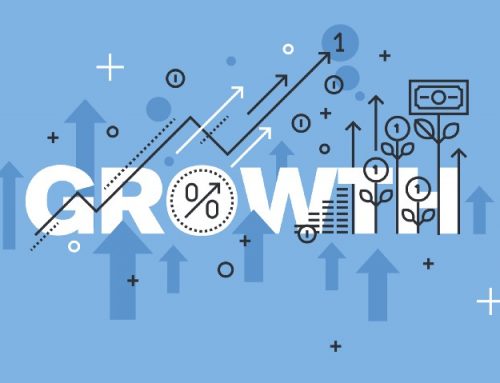
The real estate market is an ever-changing landscape. With the recent downturn, real estate agents and brokers need to be creative and switch up their strategies if they want to stay competitive.
One way to do this is to take advantage of customer relationship management (CRM) and automation tools that can help agents streamline their processes, build relationships with clients, and increase their profits.
By leveraging these tools, agents can find new ways to attract new clients and nurture existing ones, even in a low-inventory/high-price real estate market. With the right CRM and automation tools, any agent can be successful in any market.
What is customer relationship management (CRM)?
Customer relationship management (CRM) refers to any system that helps a company track and manage relationships with customers. It includes software for managing sales and marketing activities, including contact management, lead generation, sales tracking, and customer service.
CRMs come in many different forms, from software that is hosted in the cloud to CRM plugins for email marketing platforms. There are also CRMs developed specifically for real estate.
When it comes to real estate, one of the most popular CRM tools is a CRM that allows agents to track their leads and manage appointments. With an appointment scheduling CRM, agents can store pertinent information about each lead, like their name and phone number, as well as their interests and needs. This information can then be accessed again the next time the lead calls or emails the agent, so that the agent can serve them better.
Related: 5 Reasons Why You Need A Real Estate CRM
Benefits of CRM and automation in a low-inventory real estate market
Streamline your processes: CRMs and automation platforms help agents to be more efficient so that they can spend less time on administrative work and more time helping their clients.
Stay organized: By keeping track of their leads and appointments, agents can stay organized and be more responsive to potential customers.
Nurture relationships: Agents can use automation platforms to stay in touch with their clients over time, which can help to nurture relationships that might result in repeat & referral business.
Types of automation realtors can use
Prospect and Client Automation
This is the most basic form of automation, which can include sending out auto-responders, email drip campaigns, and SMS or text messages.
Client Scoring
This is a way to rate your prospects and clients based on their potential to refer somebody new to you or to buy or sell with you themselves, whether for the first time or as a repeat client. Once a contact is scored, automation can be used to help prioritize time and effort.
Prospect & Client Sorting
Agents can use automation to organize their leads and assign them to the appropriate team members. This is especially helpful for agents who work together as a team, such as in real estate franchises.
Lead Assignment
Agents can use automation to assign leads to specific contacts or properties based on certain criteria, such as the lead’s location, interests, and needs.
Closing Automation
Automation at the closing stage can help to keep track of tasks and timelines, as well as keep track of necessary documents.
Related: How To Automate Your Real Estate Business…Without Losing The Human Touch
4 tips for getting the most out of your CRM and automation
1) Choose the right CRM: CRMs come in many different forms, so agents should choose the one that best fits their needs. When comparing CRMs, agents should take into consideration their organizational needs, as well as their budget and the cost of each platform. They should also determine whether they would like to use a generic CRM or one built specifically for real estate.
Related: How To Choose The Best Real Estate CRM For Your Team
2) Prioritize your marketing efforts: Even though automation can help to drive leads, agents should prioritize in-person marketing efforts, such as networking events and conferences, to acquire new leads.
3) Choose the right automation for your business: Just because an automation tool exists doesn’t mean that it’s the right fit for your business. Agents should make sure that their automation tool supports the type of work that they do, as well as their unique organizational needs.
4) Stay organized: Even with automation and CRMs, agents should stay organized to help themselves to be more efficient. They might want to consider using inbox tools, such as tools that allow them to tag emails, organize their desktop, and search through emails.
Strategies for implementing CRM and automation
Create a structure: Before implementing automation, agents should take the time to map out their business. This can include creating a spreadsheet that outlines their team and their roles, as well as a calendar to track their leads and appointments.
Set up a lead magnet: A lead magnet is something that agents can offer to potential clients in exchange for their contact information. Agents can use their lead magnets to collect leads that can be sent to a CRM.
Create a friendly user experience: Just because agents are using automation doesn’t mean that their clients need to feel as though they’re being ignored or neglected. In fact, agents who are using automation should still be friendly and responsive to their clients, even if they are using software to track appointments and manage leads.
Set up recurring tasks: Automation can help agents to be more efficient, but not if they spend all of their time on administrative tasks that could be handled by the software. Agents should set up recurring tasks to help them to be more effective.
Potential pitfalls to avoid
Using too many tools: Agents who try to use every tool available to them might find that they’re too busy managing software to actually help their clients. Agents should try to avoid using too many apps and stick to the ones that are most important to their business.
Using the same message for everyone: Automation is helpful for keeping track of leads and staying in touch with clients, but agents should avoid sending the same message to everyone. Instead, agents should tailor their messages to the specific needs of each lead so that they can be helpful.
Using automation as a crutch: While automation can help to expedite certain tasks, agents shouldn’t rely on their tools to do all of the work. Instead, they should use automation to help organize their business, so that they can spend more time helping their clients.
Conclusion
When it comes to real estate, a strong relationship with your clients can make or break your business. Using CRMs and automation tools can help agents to nurture these relationships and keep them healthy. When real estate agents use CRMs and automation tools, they can find new ways to attract new clients and nurture existing ones, even in a down real estate market.




